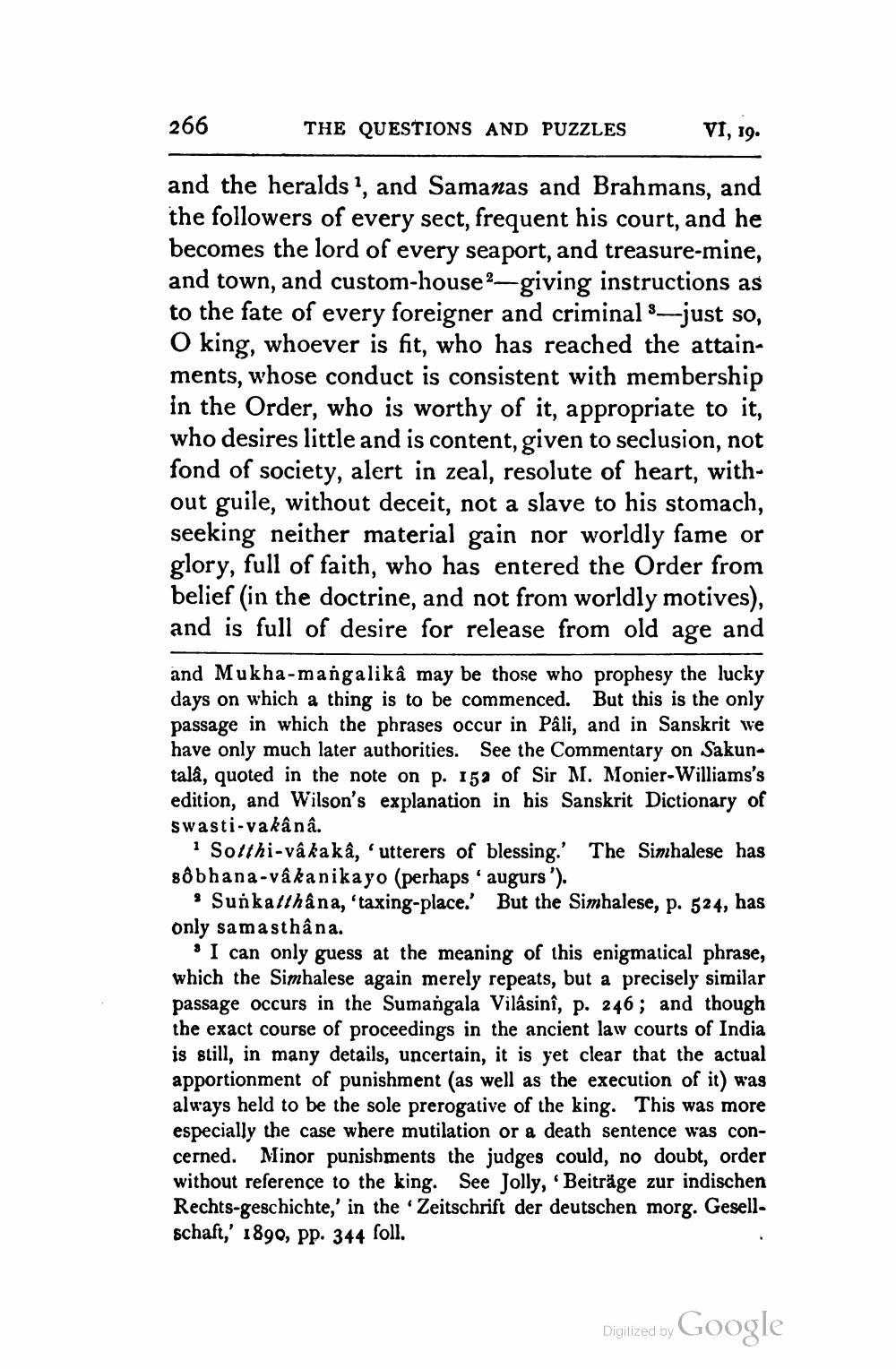________________
VI, 19.
THE QUESTIONS AND PUZZLES
and the heralds, and Samanas and Brahmans, and the followers of every sect, frequent his court, and he becomes the lord of every seaport, and treasure-mine, and town, and custom-house-giving instructions as to the fate of every foreigner and criminal just so, O king, whoever is fit, who has reached the attainments, whose conduct is consistent with membership in the Order, who is worthy of it, appropriate to it, who desires little and is content, given to seclusion, not fond of society, alert in zeal, resolute of heart, without guile, without deceit, not a slave to his stomach, seeking neither material gain nor worldly fame or glory, full of faith, who has entered the Order from belief (in the doctrine, and not from worldly motives), and is full of desire for release from old age and
266
and Mukha-mangalikâ may be those who prophesy the lucky days on which a thing is to be commenced. But this is the only passage in which the phrases occur in Pâli, and in Sanskrit we have only much later authorities. See the Commentary on Sakuntalâ, quoted in the note on p. 152 of Sir M. Monier-Williams's edition, and Wilson's explanation in his Sanskrit Dictionary of swasti-vakânâ.
1 Sotthi-vâkakâ, ' utterers of blessing.' The Simhalese has sobhana-vâkanikayo (perhaps augurs').
Sunkatthâna, 'taxing-place.' But the Simhalese, p. 524, has only samasthâna.
'I can only guess at the meaning of this enigmatical phrase, which the Simhalese again merely repeats, but a precisely similar passage occurs in the Sumangala Vilâsinî, p. 246; and though the exact course of proceedings in the ancient law courts of India is still, in many details, uncertain, it is yet clear that the actual apportionment of punishment (as well as the execution of it) was always held to be the sole prerogative of the king. This was more especially the case where mutilation or a death sentence was concerned. Minor punishments the judges could, no doubt, order without reference to the king. See Jolly, 'Beiträge zur indischen Rechts-geschichte,' in the 'Zeitschrift der deutschen morg. Gesellschaft,' 1890, pp. 344 foll.
Digitized by
Google




